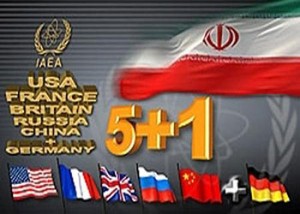 Kuwait City, Kuwait -�Iran topped the final communique of the Gulf Cooperation Council�(GCC)�summit in Kuwait, with delegates paying�particular attention to Tehran�s recent landmark nuclear agreement with world powers as they wrapped up the final day of the meeting.
Kuwait City, Kuwait -�Iran topped the final communique of the Gulf Cooperation Council�(GCC)�summit in Kuwait, with delegates paying�particular attention to Tehran�s recent landmark nuclear agreement with world powers as they wrapped up the final day of the meeting.The GCC, which includes Saudi Arabia, the United Arab Emirates, Qatar, Bahrain, Kuwait, Oman and other Gulf Arab countries,�praised Iran�s new rapprochement efforts towards the Gulf's monarchies, but also expressed concern over reports of intention of new nuclear reactor projects in the country.
"The higher council expressed concern over reports about plans to build more nuclear reactors along the Gulf coast," Abdellatif al-Zayani, the GCC general-secretary, said at the end of the two-day summit hosted in Kuwait, reading the council�s final communique.
'First step to end tensions'
The communique hailed the agreement as "a first step towards a comprehensive and permanent agreement on the Iranian nuclear programme, ending the international and regional tensions" towards it.
The 34th GCC summit comes shortly after Iran's historic preliminary deal with the P5+1 countries (the United States, Russia, United Kingdom, France, China and Germany) to cap its controversial nuclear activity in exchange for the easing of economic and trade sanctions on the country. The agreement is seen as a step towards concluding a final deal over Iran's nuclear programme.
"The council welcomes the new orientations of the Iranian leadership towards the GCC, and wishes that these orientations to be followed by tangible steps that reflect positively on peace, security and stability," Zayani said.
A week ago, Mahmoud Javed Zarif, the Iranian foreign minister, visited Doha, Kuwait, Abu Dhabi and Muscat, keeping Riyadh and Manama out of his route.
The GCC monarchies have responded in various ways to Iran since relatively moderate Iranian President Hassan Rouhani took on the task of amending the damage caused to some of Iran's relationships, especially with the West and their Arab allies, by his predecessor Mahmoud Ahmadinejad. Iran is also accused by Saudi Arabia and Bahrain of inciting the Shia majority in Bahrain to revolt against its Sunni rulers.
Assad 'committing mass homicide'
On the Syrian front, the council blamed the government of Syrian President Bashar al-Assad of "mass homicide against the Syrian people" and called for the "total pull out of foreign forces from Syria".
It called "for the withdrawal of all foreign forces from Syria", in a clear reference to Iran-backed Shia militias from Iraq and Lebanon's Hezbollah movement, both of which are supporting Assad's troops against Sunni-led rebels.
Iran has been a main ally for the Assad regime, battling with mostly-Sunni rebels supported by some of the Gulf monarchies, notably Qatar and Saudi Arabia.
The council also agreed to resume deliberations concerning a Saudi proposal to transform it into a union.
At the weekend, Oman, which has closer relations with Iran compared to other members, threatened to pull out of the loose alliance if a union was announced, while Saudi Arabia, which is solidly backed by Bahrain, has insisted it is time to move ahead with greater economic and regional integration.
By Al Jazeera�
The Iran Project is not responsible for the content of quoted articles.










